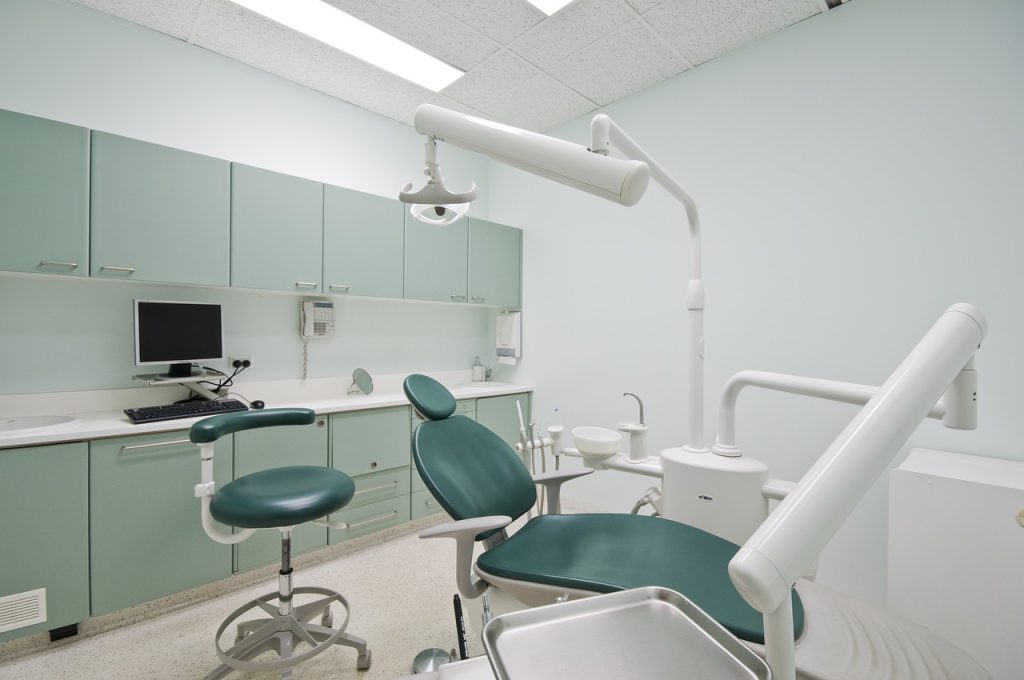VoIP (Voice over Internet Protocol) has the potential to revolutionize communication in dental practices, offering a range of benefits and solutions for dental offices. Traditional landline phones often come with limited features and require complex hardware and maintenance.
However, VoIP phones are easy to set up and provide advanced technology that can integrate with other communication channels and offer customized call flows.
- VoIP provides advanced technology and features that can enhance communication in dental practices.
- Setting up VoIP phones is easy and requires minimal hardware and maintenance.
- VoIP offers integration with other communication channels, streamlining communication processes.
- Customized call flows can be created with VoIP, improving customer service and efficiency.
- VoIP phones provide a better user experience for patients and save costs compared to traditional phone systems.
The Advantages of VoIP for Dental Offices

VoIP offers numerous advantages for dental offices, significantly improving communication within the practice and with patients. Traditional landline phones have limited features and require complex hardware and maintenance. In contrast, VoIP phones are easy to set up and offer advanced technology, such as integration with other communication channels and customized call flows.
One of the main benefits of VoIP in dental offices is the enhanced call quality. VoIP uses the internet to transmit calls, resulting in clear and reliable connections. This ensures that dental professionals can communicate effectively with patients, without any disruptions or static on the line.
Additionally, VoIP provides a range of advanced features that can enhance dental office communication. These include call recording, voicemail-to-email, and call routing. With call recording, dental professionals can easily review important conversations for quality assurance or training purposes. Voicemail-to-email allows for convenient access to voicemails, ensuring that no messages are missed. Call routing enables calls to be directed to the appropriate department or staff member, improving the overall efficiency of the practice.
Moreover, the cost savings associated with VoIP make it an attractive choice for dental practices. VoIP eliminates the need for traditional phone lines and reduces monthly phone bills. Dental offices can also save on long-distance and international call charges, as VoIP operates using the internet, eliminating the need for expensive phone networks.
| Advantages of VoIP for Dental Offices |
|---|
| Enhanced call quality |
| Advanced features (call recording, voicemail-to-email, call routing) |
| Cost savings on phone bills and long-distance calls |
VoIP offers dental offices a modern and efficient communication solution. With its advanced features, improved call quality, and significant cost savings, VoIP is revolutionizing the way dental practices communicate. By adopting VoIP, dental offices can streamline their communication channels, enhance customer service, and improve overall efficiency.
Streamlining Communication and Enhancing Efficiency with VoIP

By upgrading to VoIP, dental practices can streamline communication processes and improve overall efficiency. VoIP phones offer advanced features and technology that can revolutionize communication in the industry. Unlike traditional landline phones that require complex hardware and maintenance, VoIP phones are easy to set up and use. They utilize Voice over Internet Protocol, allowing calls to be made over the internet rather than traditional phone lines.
This technology integration provides dental practices with innovative communication solutions. VoIP phones can be seamlessly integrated with other communication channels, such as email and instant messaging. This allows for efficient and convenient communication, enabling staff members to easily collaborate and coordinate tasks. Additionally, VoIP phones offer customizable call flows, allowing dental offices to create personalized call routing for different departments or specific purposes.
VoIP phones not only enhance internal communication but also improve customer service. With features like call recording, dental practices can ensure accurate documentation of patient calls for reference and quality assurance purposes. Moreover, VoIP phones enable voicemail-to-email functionality, allowing staff members to receive voicemails directly in their email inbox. This ensures that important messages are not missed, facilitating prompt and responsive communication with patients.
Enhanced Communication Efficiency with VoIP
VoIP phones can significantly improve communication efficiency in dental offices. They eliminate the need for multiple phone lines and complex wiring systems, reducing clutter and simplifying the setup process. VoIP phones can also be easily relocated and reconfigured, providing flexibility for expanding practices or office relocations.
Incorporating VoIP into dental practices not only enhances communication efficiency but also saves costs compared to traditional phone systems. VoIP calls are typically more cost-effective, especially for long-distance and international calls. Additionally, VoIP phones require minimal hardware and maintenance, reducing ongoing expenses associated with traditional phone systems. These cost savings can contribute to the financial well-being of dental practices, allowing for investment in other areas that can further improve patient care and services.
The innovative communication capabilities of VoIP phones, along with their cost savings and efficiency improvements, make them a valuable tool for dental offices striving to modernize their communication methods. By upgrading to VoIP, dental practices can streamline their communication processes, enhance customer service, and improve overall efficiency.
| VoIP Benefits for Dental Practices |
|---|
| Streamlined communication processes |
| Improved collaboration and coordination |
| Customizable call flows |
| Enhanced customer service |
| Cost savings compared to traditional phone systems |
Providing a Better User Experience and Cost Savings with VoIP
VoIP not only offers a better user experience for patients but also brings significant cost savings for dental practices. With the advanced features of VoIP phones, dental offices can modernize their communication methods and enhance patient interactions. One key advantage of VoIP is its ability to integrate with other communication channels, such as email and messaging platforms. This allows dental practices to streamline their communication processes, ensuring that patients can reach them through their preferred channels.
VoIP phones also offer customized call flows, allowing dental offices to create personalized greetings and call routing options. This not only improves the overall customer service experience but also increases efficiency by directing calls to the appropriate staff members. For example, calls can be automatically routed to the receptionist or specific departments, such as billing or scheduling, based on the caller’s needs.
Additionally, VoIP phones provide cost savings for dental practices compared to traditional phone systems. With VoIP, there is no need for complex hardware installations or maintenance, reducing upfront and ongoing costs. Long-distance calls are also more affordable with VoIP, as they are transmitted over the internet rather than traditional telephone lines. This makes VoIP an ideal choice for dental practices looking to modernize their communication while saving money.
Enhancing Communication with Advanced Features
One of the key features of VoIP phones is call recording, which allows dental offices to monitor and review calls for quality assurance purposes. This can be especially beneficial for training new staff members or ensuring compliance with industry regulations. VoIP phones also offer voicemail-to-email functionality, where voicemails are transcribed and sent to an email address. This ensures that important messages are not missed and can be easily accessed and prioritized.
| Advantages of VoIP for Dental Practices | Benefits |
|---|---|
| Improved customer service | Enhanced call routing and customized call flows |
| Cost savings | No complex hardware installations or maintenance |
| Integration with other communication channels | Streamlined communication processes |
| Advanced features | Call recording and voicemail-to-email functionality |
VoIP phones offer numerous benefits for dental practices, revolutionizing communication in the industry. Not only do they provide a better user experience for patients, but they also save costs compared to traditional phone systems. With the ability to integrate with other communication channels, customize call flows, and provide advanced features like call recording and voicemail-to-email, VoIP is the ideal solution for efficient dental office communication. By embracing VoIP technology, dental practices can modernize their communication methods, streamline processes, and enhance overall efficiency.
Conclusion
In conclusion, VoIP has the potential to revolutionize communication in dental practices, offering enhanced efficiency, cost savings, and a better user experience. With traditional landline phones becoming outdated and limited in functionality, dental practices can greatly benefit from the advanced technology and features of VoIP phones.
Unlike traditional phones that require complex hardware and maintenance, VoIP phones are easy to set up and integrate seamlessly with other communication channels. This allows dental practices to streamline their communication processes, improving customer service and enhancing overall efficiency.
VoIP phones also provide a better user experience for patients. With features like call routing and personalized call flows, dental practices can ensure that patients are connected to the right department or staff member promptly. This not only enhances patient satisfaction but also saves valuable time for both patients and dental staff.
Furthermore, VoIP offers significant cost savings compared to traditional phone systems. Dental practices can eliminate costly hardware installations and maintenance fees, as VoIP operates over the internet. In addition, VoIP providers often offer flexible pricing plans, allowing dental practices to choose the most suitable package for their specific needs and budget.
As communication plays a vital role in the success of dental practices, it is crucial for them to consider adopting VoIP technology. By doing so, dental practices can revolutionize their communication methods, optimize efficiency, reduce costs, and provide a superior experience for both their staff and patients.
FAQ
What is VoIP?
VoIP stands for Voice over Internet Protocol, which is a technology that allows voice communication to be transmitted over the internet instead of traditional telephone lines.
How does VoIP differ from traditional landline phones?
Traditional landline phones require complex hardware and maintenance, while VoIP phones are easy to set up and offer advanced features such as integration with other communication channels and customized call flows.
What are the benefits of using VoIP for dental practices?
VoIP phones offer improved efficiency, cost savings, and a better user experience for patients. They streamline communication, enhance customer service, and modernize dental practice communication methods.
Can VoIP save costs compared to traditional phone systems?
Yes, VoIP can save costs for dental practices compared to traditional phone systems. It eliminates the need for separate phone lines and reduces long-distance calling charges, resulting in cost savings.
How can VoIP enhance customer service in dental practices?
VoIP phones offer advanced features such as call routing and personalized call flows, allowing dental practices to provide a better user experience for patients. This enhances customer service and improves overall communication within the practice.



